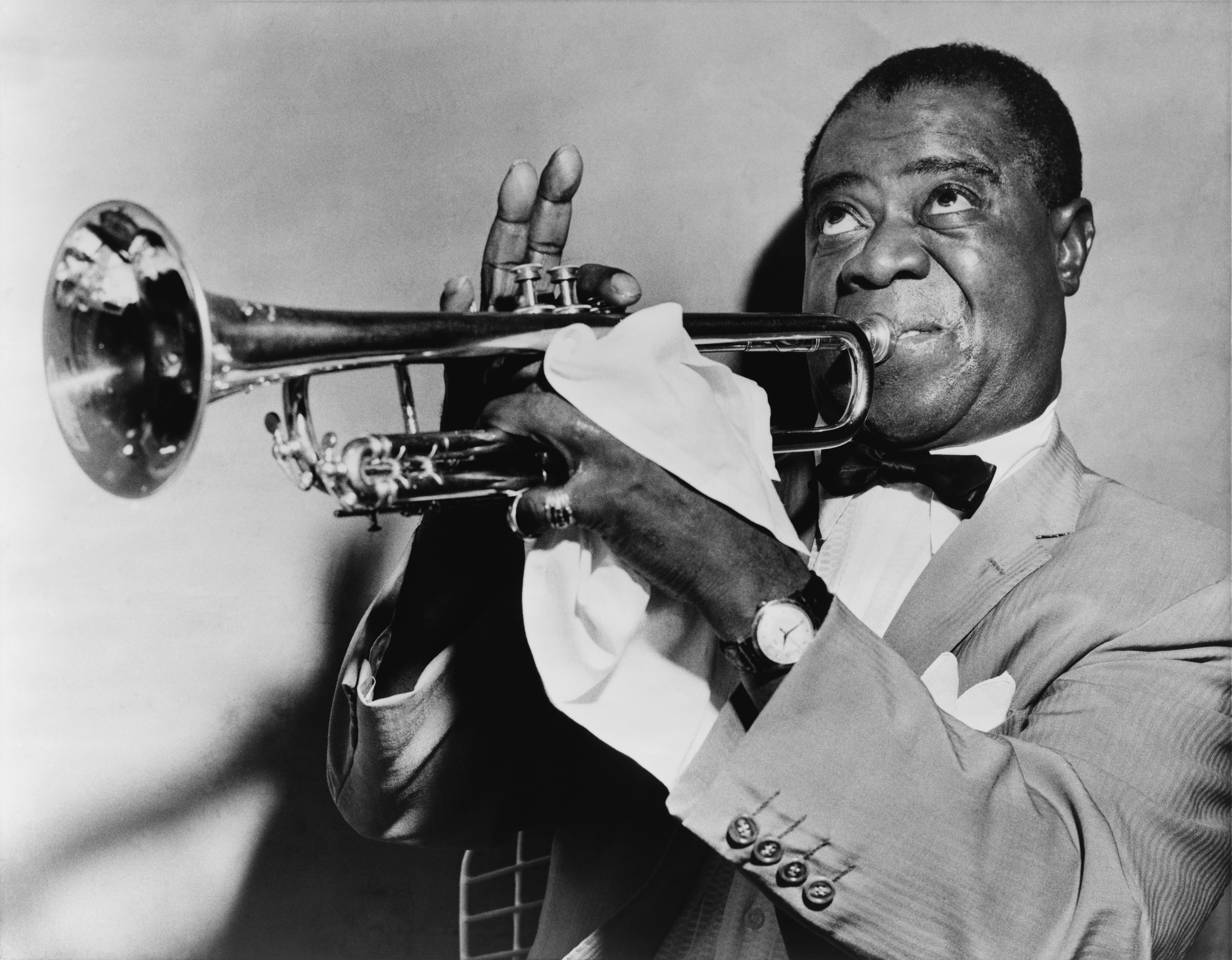Within the conversation of creativity, there is little room for continuance absent of the mention of improvisation. Jazz music embodies this idea showing the ways in which Black people used creativity for means of survival and as tools of expression. Regarded as black America’s classical music, Jazz music displays a blank slate metaphorical depiction of the sentiments and ideas of the people. The origination of jazz music can be traced back to ragtime as its free sound emulates the mood and character of jazz. New Orleans carried this sound in a unique way bringing Jazz music into birth. the downtown area of New Orleans provides a place for freedom of expression, speech, and a right to exist by way of music. The music was blues inspired with a twang and emphasized with string and brass instruments. The clarinet, cornet, trombone, guitar, bass, and drums were seen working together to make a unanimous but individually preservant sound. Jazz worked with double time, a section in which the rhythmic pulse of a piece is doubled, shout chorus, and big band jazz to define itself. Additionally, artists of the genre utilized riffs and call response which was emulative of past spirituals and work songs

https://www.youtube.com/watch?v=Y5O-oIUXIjo
Buddy Bolden is commonly associated with the first jazz band, however, artists Jelly Roll Morton, Barney Bigard., and Sidney Bechet also worked to define the early workings of the genre. In chicago artists such as louis armstrng and Joe Oliver captured the sounds of New Orleans by way of recording. Many groups were developed as well such as “The Hot Fives” as well as “The Hot Sevens”. Prominent figures of the genre also included artists such as Duke Ellington, Don Redman, and Flecher Henderson
The emergence of these artists paved the way for the commodification of the genre by way of big band jazz and recordings. Chicago’s clubs became a spot for jazz to burst onto the scene of relevance. places such as Deluxe Café, featuring artists allowed for not only the enjoyment of jazz from blacks but also from whites who came to enjoy music. The 1928 recordings of jazz music by Louis Armstrong a brought jazz music to the public light even more. The early recorded works are some of the most celebrated music of the jazz genre. Duke Ellington rose to fame through his arrival on “The Cotton Club”, a club for whites only. In the commodification of Jazz music across racial divide there was still an idea that black people were to be seen as an example of entertainment first and humanity last. This put aside, these clubs created a platform for jazz music which allowed for the genre to flourish. Radio broadcasting from hotels, clubs, and dancehalls helped to solidify the place of jazz music further allowing for groups to gain attention and opportunities to promote for brands such as Coca-Cola and Lucky Strike. as the commodification of Jaz expanded subgenres such as swing jazz, composed of riffs, improvised passages, and soloist passages; Bebop, which arose during World War II; and cool and hard bop became popular.
The social implications of the genre are in its improvisational character. the music points to the black individual’s quest for freedom. Individual artists worked to express this in different ways depending on when they were creating and for what reason. Free jazz for instance, which rose to prominence during the 60s served as symbolism to the dissonance black people felt in relation to the society in which they lived in. This was reflected in the united but collusive sound that free jazz provided. This can be contrasted with the traditional jazz sub-genre which reflected a time in which black people were still working to gain acceptance from white people. By the 70s however, there was a complete attachment from the ideas the respectability politics held them back from expressing. this brought in an influx of different sounds still qualifying as jazz. Modal jazz began to become popular during the civil rights movement and reflected the times by showing the limited resources black people had at the time to express themselves by using simplistic modes and one or two elements of sound instead of many such as in free jazz.
Overall, jazz is an incredibly important genre because it played the basis for so many genres such as funk, disco, soul, as well as many other genres by way of subgenres such as fusion jazz as well as its general diversity in sound. Jazz in its improvisation also laid a basis for the modern gospel as well as it pulls the listener to consider improvisation as a relevant and relevant component of soulful expression. Subgenres like cool jazz have seen the use of white people dipping onto the jazz scene as well thus allowing for its future expansion further. The creative element of jazz asks the listener to consider what can be submitted as art, celebrated and pushed as relevant and this in and of itself is where the influence of jazz on future genres lies.
I feel that of all the genres studied, jazz is most exemplary due to its creative ability to describe the times in which it was produced. This marks jazz as a pivotal genre within the study of the black experience and further emphasizes the ways in which black people have used music to their advantage in taking ownership of their experiences both individually and collectively
https://www.youtube.com/watch?v=0fC1qSxpmKo

